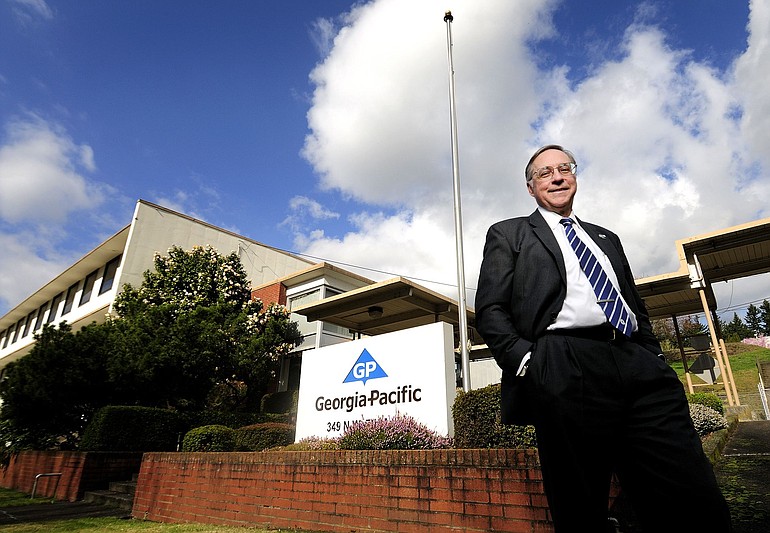For sale: A Camas laboratory campus that once thrived with researchers bent to their test tubes in search of efficiencies for the town’s giant paper mill.
Lab researchers experimented with making paper out everything from grass clippings to cherry tree bark to synthetic wood pulp to bagasse, a fibrous residue of sugar cane.
Chemists at the hillside lab also generated pollution controls, developed fast-growing trees and produced the chemical basis for the controversial drug DMSO.
“They tried to make paper out of just about anything,” said Bill Connelly, a commercial real estate broker who is marketing the 15-acre collection of laboratories, offices and outbuildings for its owner, Atlanta-based Georgia-Pacific Corp.



